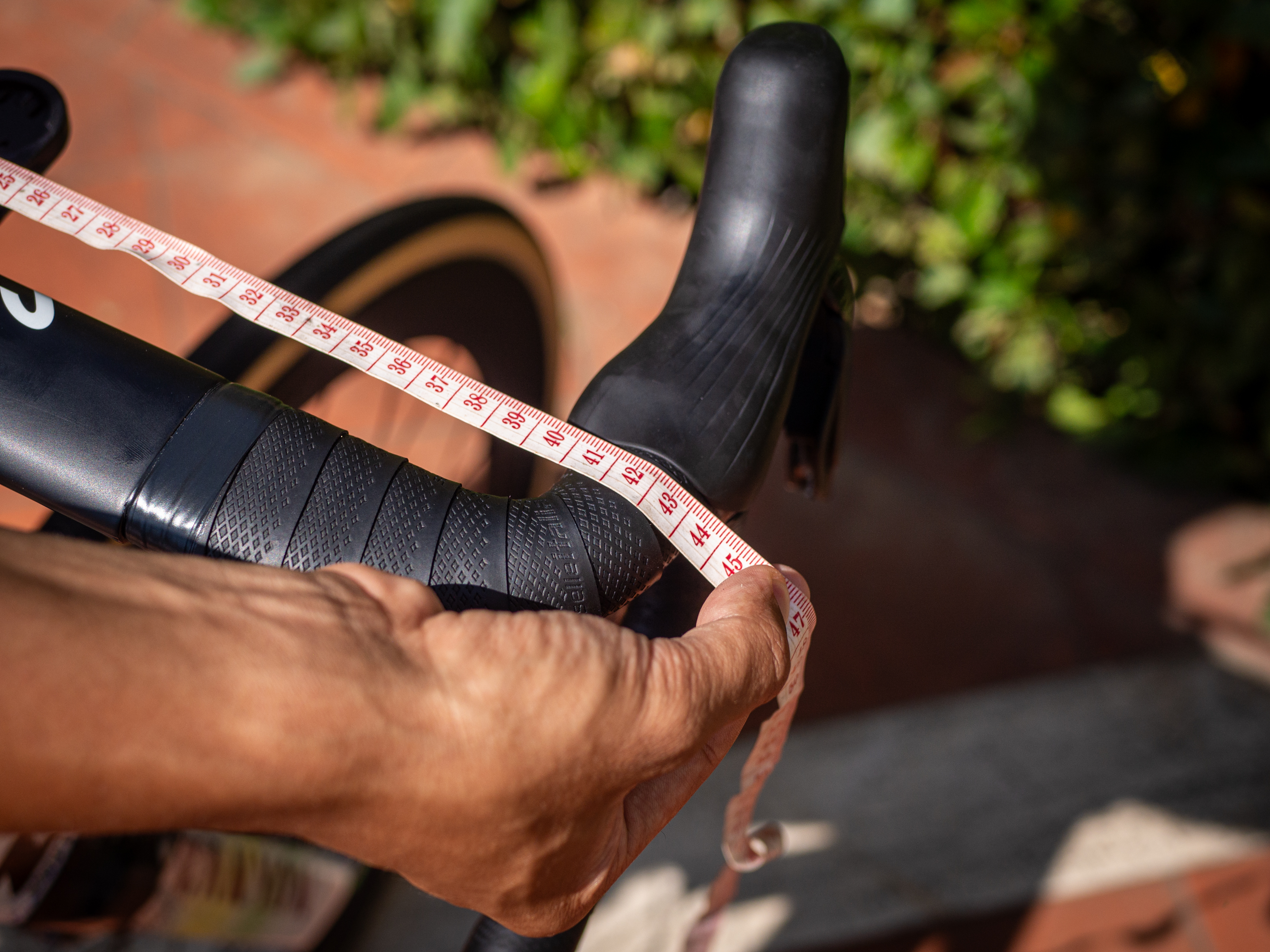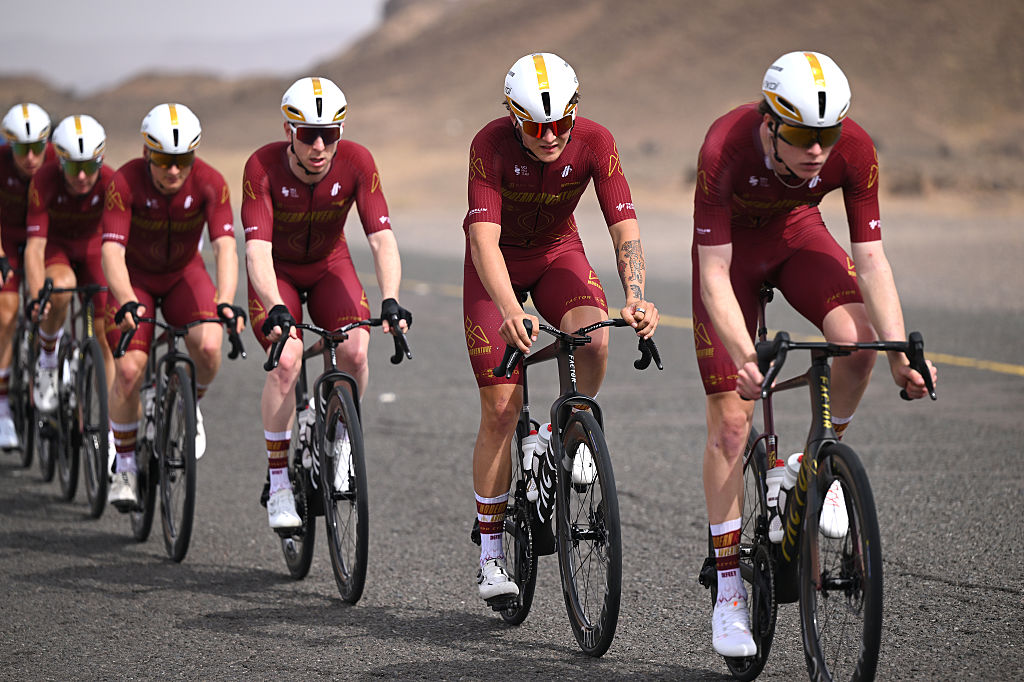Bike fitters hit out at the UCI's new handlebar width rules, highlighting increased risk of long-term injury in women
The rule change, described as 'insulting' by one rider, also increases 'risk of reduced control' of the bike

The latest race content, interviews, features, reviews and expert buying guides, direct to your inbox!
You are now subscribed
Your newsletter sign-up was successful
Last week, as the UCI announced a raft of changes to its technical regulations, it may have inadvertently increased the risk of discomfort, reduced control, and long-term injury for women and smaller men.
That is the opinion of the International Bike Fitting Institute (IBFI) – the global body for bike fitting professionals – according to a statement made by its president, Lee Prescott, on Saturday.
In a press release published Thursday, the Union Cycliste Internationale (UCI) revealed a host of changes to the rulebook that governs the bikes and equipment used in competition.
They were somewhat buried alongside news of its 2026 calendar – in which it shunned the One Cycling project – as well as financial reports, future dates for a variety of world championships and, somewhat ironically, provisions for the development of women's cycling.
Among them was a pair of rules relating to handlebars, which stated:
"As of [1 January 2026], the minimum overall width of handlebars (outside to outside) for mass start road and cyclo-cross events will be set at 400mm, with an inner width of 320mm between brake levers."
In response, the IBFI released a statement to say it "expresses serious concern" about the rule.
The latest race content, interviews, features, reviews and expert buying guides, direct to your inbox!
"While the IBFI understands and supports the intention behind the ruling—to discourage the unsafe use of excessively narrow handlebars—we believe the current implementation lacks adequate consideration of human biomechanics and rider safety," the statement began.
"The average shoulder width for most riders, particularly women and smaller men, typically aligns better with handlebars measuring between 360mm and 380mm. Forcing these riders to use 400mm bars places them in compromised positions that deviate from sound biomechanical principles and may increase the risk of discomfort, reduced control, and long-term injury.
"Compounding this issue is the absence of a corresponding revision to the regulations governing lever hood placement. Without the ability to reduce the width at the hoods, riders seeking a more natural arm and shoulder alignment will turn the lever hoods inward to an excessive degree.
"This will compromise reach to the brake levers from the drops—a critical safety concern in high-speed racing scenarios."
The UCI did, in fact, revise the regulation governing lever hood placement, but in a way that seems to contradict the prior stance the UCI itself had taken.
When announcing the existing rules in December 2023 – those to be brought into effect at the start of 2024 – the UCI announced that "a maximum inclination of 10 degrees is permitted" with regards to how far inwards a lever could be angled.
That 10-degree inclination was decided based on the structural integrity of handlebars; the degree at which it was safe without adding undue stress to the carbon, following a period of consultation between the UCI's then Head of Innovation, Michael Rogers, and a host of manufacturers.
A new tool was created to test the angle, and flared bars – designed to have levers angled inwards safely – would allow riders to run inward-tilted levers legally. It seemed as though the UCI was working with manufacturers on a safety-led rule change to change the sport for the better.
The UCI's new rule on lever position, however, simply states a maximum distance between the levers of 32cm. Even with hoods angled well within the 10-degree limit, riders are being caught out, even on bars as wide as 44cm.
A post shared by Cyclingnews (@cyclingnews_feed)
A photo posted by on
For women and smaller men, for whom a narrower handlebar is ergonomically the better fit, the likelihood of being deemed illegal is extremely high.
In a BikeRadar article it was reported that Cervélo warned that 14 of the 18 riders on the Visma-Lease a Bike women's team would have to change their handlebars, and that the entire Handsling Alba Development Road Team are affected, to the extent that the team doesn't even have stock of a compliant handlebar, let alone a rider currently using them.
And speaking to Escape Collective, Niamh Fisher-Black (Lidl-Trek) said she feels "the fact that they would state that so rationally feels insulting to women," later adding "I’d argue that’s one very quick way to make the peloton more unsafe."
"Furthermore," Prescott's statement continued, "The potential ripple effect from manufacturers is concerning. Many may move away from producing handlebars in widths under 400mm, fearing regulatory non-compliance.
"This potential trend risks alienating a large segment of the cycling population—those who would be best served by narrower bars for comfort, fit, and control. Cycling should be inclusive and accessible, not driven by regulatory standards that ignore anatomical diversity.
"The IBFI has formally contacted the UCI requesting clarification on the evidence base for this new rule and urging reconsideration of its application. We await a response and hope to engage in constructive dialogue to ensure that equipment regulations promote—not hinder—safe, sustainable participation in our sport."

Josh is Associate Editor of Cyclingnews – leading our content on the best bikes, kit and the latest breaking tech stories from the pro peloton. He has been with us since the summer of 2019 and throughout that time he's covered everything from buyer's guides and deals to the latest tech news and reviews.
On the bike, Josh has been riding and racing for over 15 years. He started out racing cross country in his teens back when 26-inch wheels and triple chainsets were still mainstream, but he found favour in road racing in his early 20s, racing at a local and national level for Somerset-based Team Tor 2000. These days he rides indoors for convenience and fitness, and outdoors for fun on road, gravel, 'cross and cross-country bikes, the latter usually with his two dogs in tow.
You must confirm your public display name before commenting
Please logout and then login again, you will then be prompted to enter your display name.
